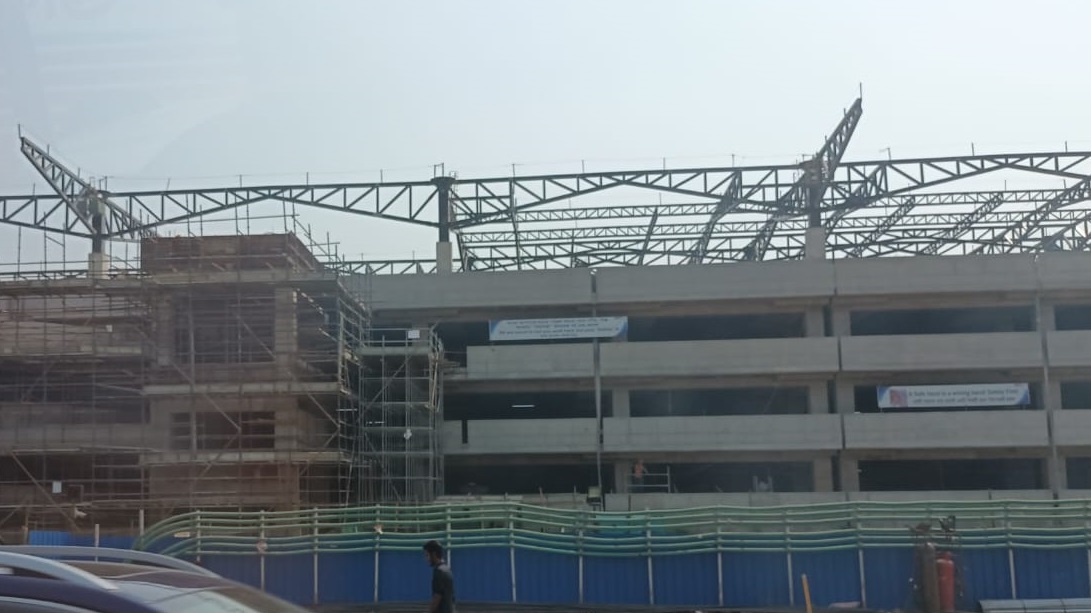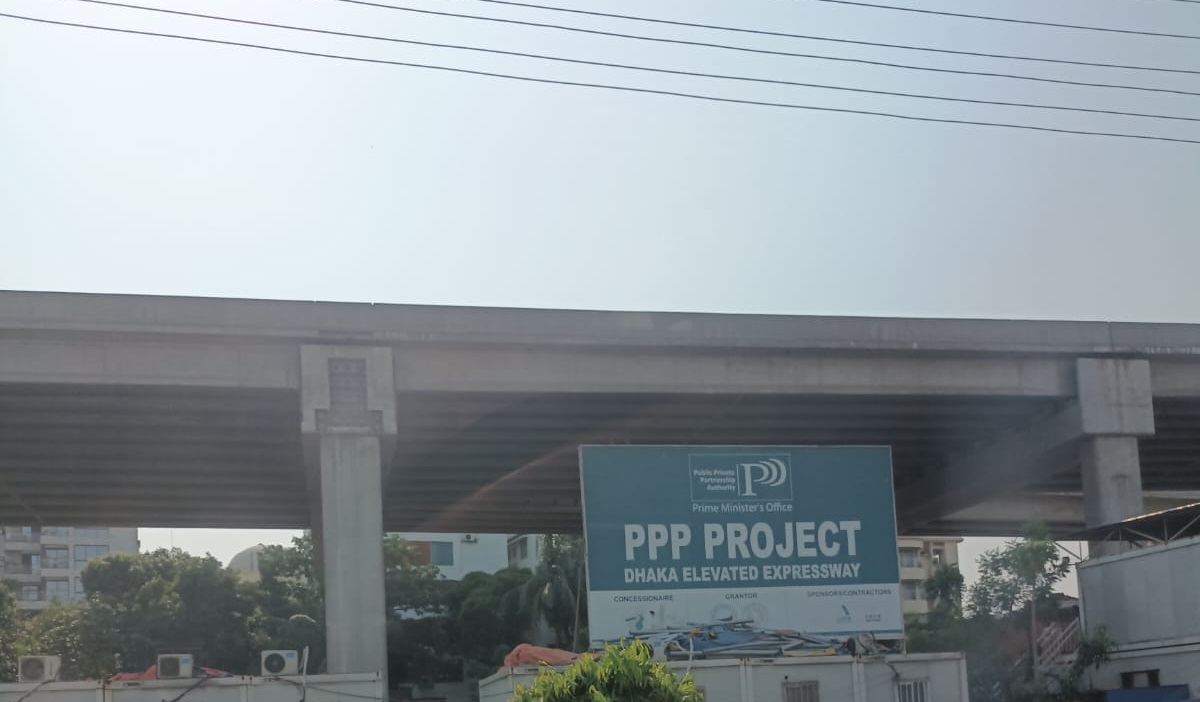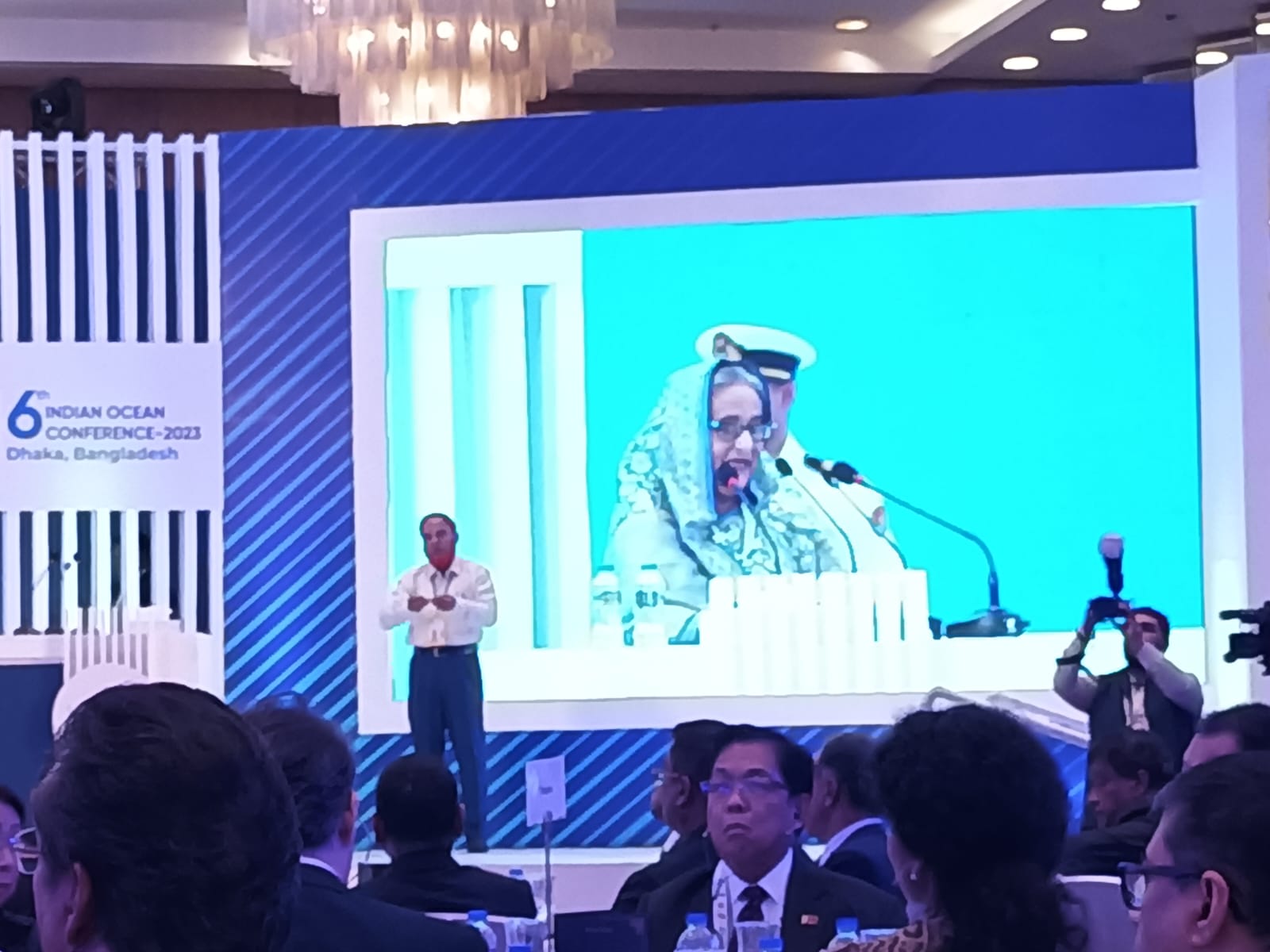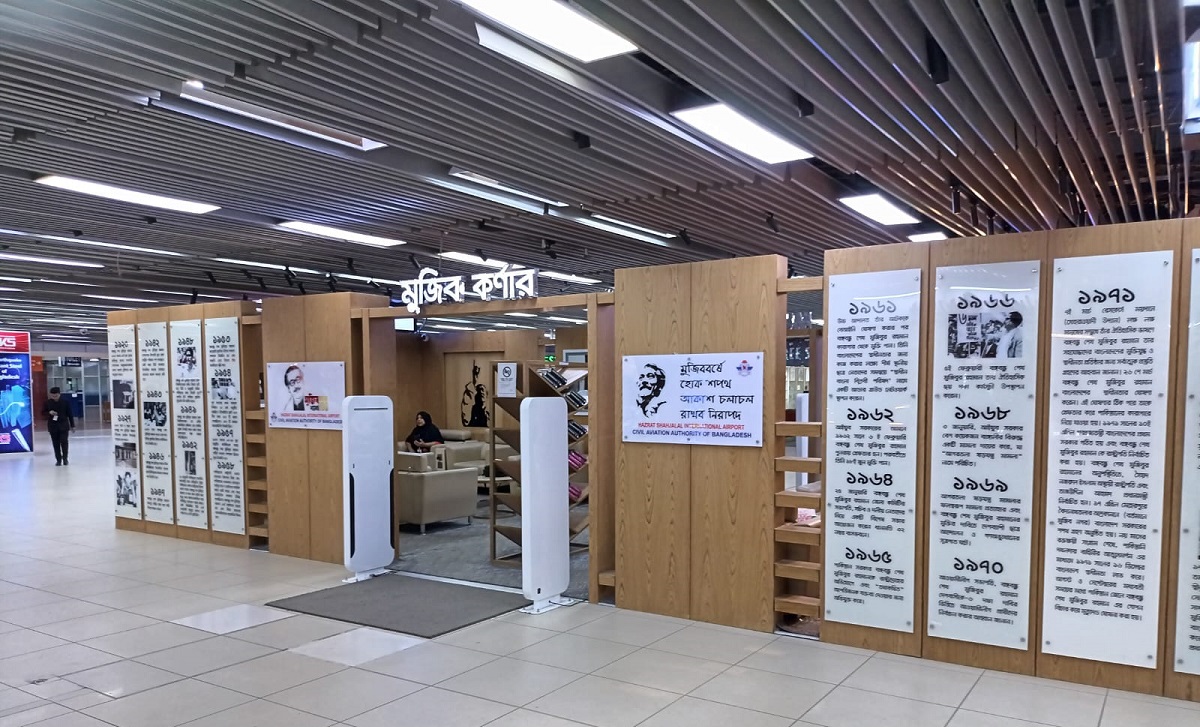Landing at the Hazrat Shahjalal Airport in Dhaka evokes familiarity. The airport is similar to Indian airports of the early 2000s with limited facilities and visibly managed by the government. However, it is in transformation mode, evident in the under-construction new Terminal-3 immediately outside. Across Dhaka are signs of a city undergoing change. Near the airport, a metro-rail network and an elevated bus-corridor are being built, much needed in this city of heavy traffic. A bit further, 150 kilometers to the west is the Rooppur Nuclear Power Plant being constructed with Russian technical assistance – a source of zero carbon electricity.


Unlike other countries in the region which outsourced their infrastructure build-out to China, Bangladesh has benefitted from a more conservative and balanced approach. In so many ways, Bangladesh is like the India of early 2000s – a developing country with a long way to go but clearly on the move.
This confidence was on display during the sixth edition of the two-day Indian Ocean Conference, a major international event and a way for the country to showcase itself. Speakers at the conference – organized annually by Delhi-based think tank India Foundation for countries in the Indian Ocean region – many of them former diplomats, observed how the country, which was termed a basket-case by Henry Kissinger in 1972, is now a case study in progress.

The contrast with Pakistan, which is struggling with an economic and a political crisis, couldn’t be starker. In 2026, Bangladesh will graduate out of the category of Least Developed Countries (LDCs), a move delayed by the Covid-19 pandemic. This point was specifically made by Prime Minister, Sheikh Hasina, who inaugurated the conference. Pictures of her father, Bangbandhu Sheikh Mujibur Rehman are ubiquitous across the city – at the airport, hotels and in public spaces.

Of course, there are hurdles along the path. Bangladesh continues to host a large number of Rohingya refugees, whose repatriation is an important issue. The past two years have seen numerous other problems for Bangladesh, some caused by the Russia-Ukraine conflict, others self-inflicted. As an importer of food, fuel and fertilizer, Bangladesh was hit by the high prices of these commodities in 2022. The government’s insistence on keeping the Taka artificially strong against the dollar resulted in a sharp fall in remittances, especially from the Gulf. Eventually, Bangladesh had to approach the IMF for a package – which in turn insisted on a free-float for the currency, that dropped by almost 25% against the dollar. This has resulted in higher inflation, much more than the official figure of 9.3%. Foreign exchange has become difficult to find, and the government has imposed restrictions on some imports. (India abandoned a fixed peg to the dollar a long time ago, in 1992.)
India is watched with interest – especially the recent divestment of Air India. The government still runs the national airline Biman, as well as airports, and continues to play a large role in the economy. The airports offer an interesting study in pragmatism: they are named after Sufi saints rather than political figures, heading off any potential controversy on naming them. It’s a mixed economy where key sectors such as banking and telecom are privately owned. Textiles, the major industry which accounts for export income, is also mostly private. The government still runs sectors such as petroleum and power.
A natural outcome of Bangladesh’s pioneering micro finance industry means that digital payments are now big in Bangladesh and are commonly used for small payments, including those for autos and rickshaws as well. BKash (pronounced Bikash) is a major mobile financial service operating in Bangladesh, and can be used for a range of services including mobile recharges, remitting money into the country, withdrawing money from ATMs and payment of bills. It is currently the largest startup in Bangladesh and is worth over $1 billion, making it a unicorn. BKash was started in 2011 by a local entrepreneur Kamal Quadir and counts Softbank and Ant Financial among its’ investors. Automobiles are almost entirely imported – roads are dominated by Indian two-wheelers (Hero, TVS, and Bajaj) and Japanese and Chinese cars.
The conference ended a day before cyclone Mocha – a category 5 storm and the strongest in the Bay of Bengal region in a long time – made landfall near the Bangladesh-Myanmar border, between Cox’s Bazar and the recently commissioned Sittwe Port. There are reports of loss of life and damage to infrastructure, but this is nothing compared to the kind of losses Bangladesh has seen in the past to natural disasters. The country was much better prepared. It has come a long way.
Amit Bhandari is Senior Fellow for Energy, Investment and Connectivity, Gateway House.
Photo credits: Amit Bhandari.
This blog was exclusively written for Gateway House: Indian Council on Global Relations. You can read more exclusive content here.
For permission to republish, please contact outreach@gatewayhouse.in.
Support our work here.
©Copyright 2023 Gateway House: Indian Council on Global Relations. All rights reserved. Any unauthorised copying or reproduction is strictly prohibited.


